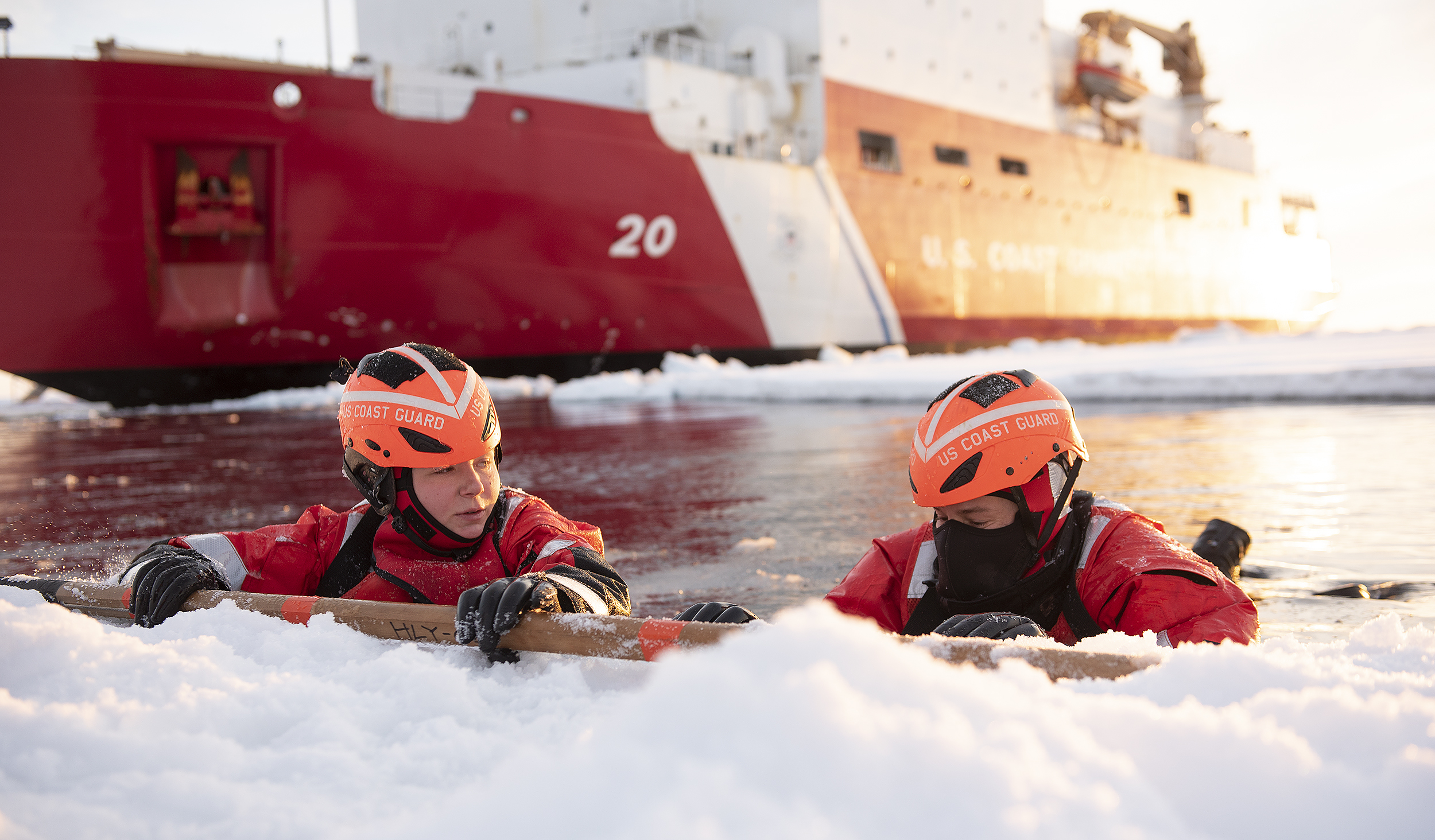
The nominee to lead U.S. Northern Command told a Senate panel he would support placing a base for the Coast Guard’s new icebreaker fleet in the Arctic.
Fielding questions today from the Senate Armed Services Committee during his confirmation hearing to lead the combatant command, Air Force Lt. Gen. Glen VanHerck told Sen. Dan Sullivan (R-Alaska) he agreed that placing one of the sites for the icebreakers in the portion of the U.S. within the Arctic region is a good option.
“Senator, I do think it makes sense. And if confirmed, I’d continue to work with you and this committee to ensure that we get after that,” VanHerck said.
In his line of questioning, Sullivan was referring to a June memo from the White House that called for an assessment of the Coast Guard’s Polar Security Cutter program, for which the service has already issued a contract award. In the memo, the Trump administration instructed officials to launch a study that would include an evaluation of both domestic and international bases for the fleet of icebreakers.
VanHerck’s testimony referenced increased Russian and Chinese presence in the Arctic, actions Navy officials have been expressing concern over in recent years.
“China and Russia… [have] tremendous resources in the Arctic. Russia specifically – using the militarization, taking approximately a dozen or so bases and then either reopening or opening to have significant influence in the Arctic. China calls themself a near-Arctic nation, which I find hard to believe, but they do. But certainly, they want to have persistence in the Arctic as well. That demands persistence of the United States as well, in my mind. And to do that would require some capabilities,” he said.
VanHerck noted the difficulty communications pose for forces in the Arctic region.
“Communication allows command and control as well. And to deter and defend you have to be able to command and control the forces,” he said. “And so you have to have the infrastructure to support that.”
The Air Force general said he anticipates a “dynamic environment” should the Senate confirm him for his new role as NORTHCOM commander. He highlighted Russia’s submarine capability as a cause for concern.
“Over the last three decades, our competitors and potential adversaries have watched the United States and our way of deterring, our way of competition and our way in conflict. They’ve taken the opportunity to adapt to that environment by watching us, specifically China and Russia, across all domains,” he said.
“Russia develops strategic capabilities such as their submarines, which now are a significant challenge for tracking and pose the potential for cruise missiles that can strike the homeland. China will do the same in the not-too-distant future, as they continue to develop their capabilities and become more expeditionary. Russia will continue with their cruise missile development, which is a significant challenge.”





